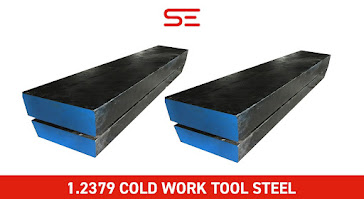What are the key properties and applications of P20 Steel Grade, and how does it compare to other tool steel grades in terms of performance and versatility?

P20 Steel, also known as P20 tool steel, is a versatile and widely used mold steel with several key properties and applications: Key Properties of P20 Steel: 1. Excellent Machinability: P20 Steel exhibits good machinability, allowing for easy shaping and fabrication of molds and components. 2. High Hardenability: It has high hardenability, meaning it can be hardened throughout its cross-section when properly heat-treated, resulting in excellent wear resistance. 3. Good Polishing Ability: P20 Steel can be polished to a high surface finish, making it suitable for applications requiring fine detail and aesthetic appeal. 4. Good Toughness: P20 Steel offers good toughness, which helps prevent cracking and chipping during use, enhancing the durability of molds and components. 5. Excellent Dimensional Stability: It maintains its shape and size even under high temperatures and pressures, ensuring precision and consistency in molded products. Applications of P20 Steel: 1. ...

